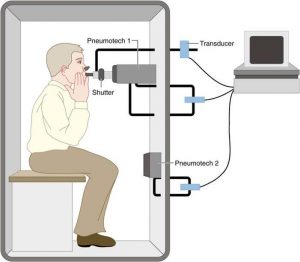WHAT IS DIFFUSION STUDY?
A gas diffusion study is one of a number of pulmonary function tests that help determine how well the lungs are functioning
. The word “pulmonary” means having to do with the lungs. “Diffusion” in this case refers to how well the alveoli, or air sacs in the lungs, are delivering oxygen to and removing carbon dioxide from the blood in the capillaries (tiny blood vessels) that surround them.
When is a gas diffusion study needed?
There are a number of reasons to conduct a gas diffusion study. It can be used to:
- Find the reason for a patient’s breathing problems, such as shortness of breath, or other lung-related symptoms such as chest tightness or chest pain; bouts of coughing or wheezing, and an inability to walk or run at the same pace as others in the same age group.
- See if there is any current lung damage.
- Screen a person at risk for lung disease. Risk factors include the presence of asthma or allergies; heart disease; smoking; exposure to tuberculosis, and long-term exposure to asbestos, fumes or dusty conditions.
- Determine a person’s risk level before undergoing surgery.
- Assess one’s health before beginning a strenuous exercise program.
- Measure the effect of an already known disease on lung function.
- Provide information on how well a current treatment may be working.
- Help track whether an existing condition is getting better or worse.


